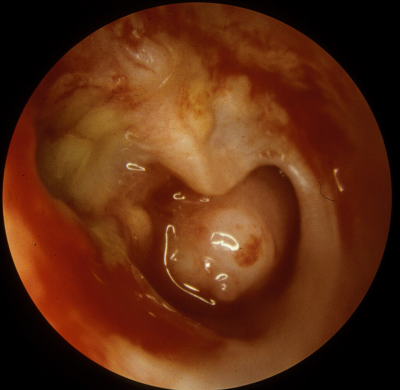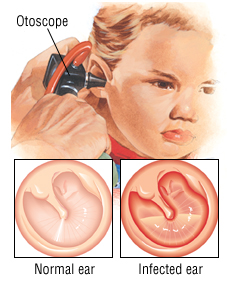
Chronic Otitis Media: Causes, Treatment
Sometimes an infection of the middle ear can cause a hole in the eardrum and when it does not heal within six weeks, it is called chronic otitis media. Some people may have repeated ear infections, which can lead to hearing loss and other serious complications.
It is not as common as Acute Otitis media with less than 1% in both children and Adults being affected. The risk of hearing impairment is high, with 50% having an associated hearing impairment. The commonest cause of chronic otitis media is recurrent Acute otitis media.
What is Chronic Otitis Media?
This is a type of inflammation of the middle ear that lasts longer than 2 months. As we explained earlier on in our previous write up, this inflammation or swelling of the middle ear could be as a result of Bacterial or Viral agents. Click here to understand about the parts of the ear.
What are the types of Chronic Otitis media?
It may be:
1. Non infected chronic otitis media – Here, there is a hole in the ear drum but there is no infection or fluid in the middle ear. The condition remains stable as long as the ear remains dry. The hole only needs to be repaired to improve hearing or to prevent infection.
2. Suppurative (filled with pus) Chronic Otitis media– In this type, there is a hole in the eardrum and an infection in the middle ear. There is foul smelling fluid coming out of the ears and needs treatment with antibiotics
3. Chronic Otitis media with Cholesteatoma– A hole that stays for long in the eardrum can lead to a cholesteatoma which is a growth in the middle ear that is made up of skin cells and debris. These growths, can lead to hearing loss and can easily be infected. The growths can eat into the bony structures of the mastoid (the bone behind the middle ear)
What are the Symptoms of Chronic Otitis Media?
There may be no Symptoms or only hearing loss that is mild
When there are symptoms they include:
- Ear pain or discomfort
- Ear discharge that is foul smelling
- Fever, headache and Confusion
- Swelling, and redness behind the ear which may indicate spread of infection of the mastoid bone (mastoiditis)

What to do?
The best thing would be to see an ENT (ear nose and throat) specialist at an outpatient clinic. The doctor will diagnose the disease by taking a history of the illness which is just asking some questions about the symptoms and other details.
He will then confirm the diagnosis by examining the ears with an otoscope and may also take a sample of the draining fluid to be examined in a laboratory.

Hearing tests may also be done including to asses the hear loss if any.
If there are complications like mastoiditis or a cholesteatoma, additional tests may be needed which may include x-ray, computed tomography scan, or a magnetic resonance imaging scan.
Treatment of Chronic Otitis Media?
The treatment follows these goals:
Resolving ongoing infection: The doctor will prescribe antibiotics for the treatment of chronic otitis media and it may be enough to stop the draining fluid and in many cases a fluoroquinolone antibiotic solution like ciprofloxacin is used. Steroids may also be used (drugs to reduce the inflammation)
Reduce drainage from the ear: This may require suctioning out the middle ear fluid to help it heal faster and doctor may advice to keep the ear clean and dry to help healing.
Healing the eardrum: If the hole is persistent, a surgery may be recommended to fix the ear drum.
What is the Outcome
About 9 out of 10 patients are free of infection after antibiotics and ear aspiration. However, there may be a degree of hearing loss in some cases.
What are the Complications of Chronic Otitis Media?
Complications can be serious like brain infections such as an abscess or meningitis (inflammation of the coverings of the brain).
How can I prevent Chronic Otitis media?
The best way to prevent Chronic otitis media is to treat any ear infections promptly to prevent complications like hearing loss, speech problems and brain infections.
Feel free to ask any questions that you may have about this condition using the comment form below.
Leave a reply
Leave a reply